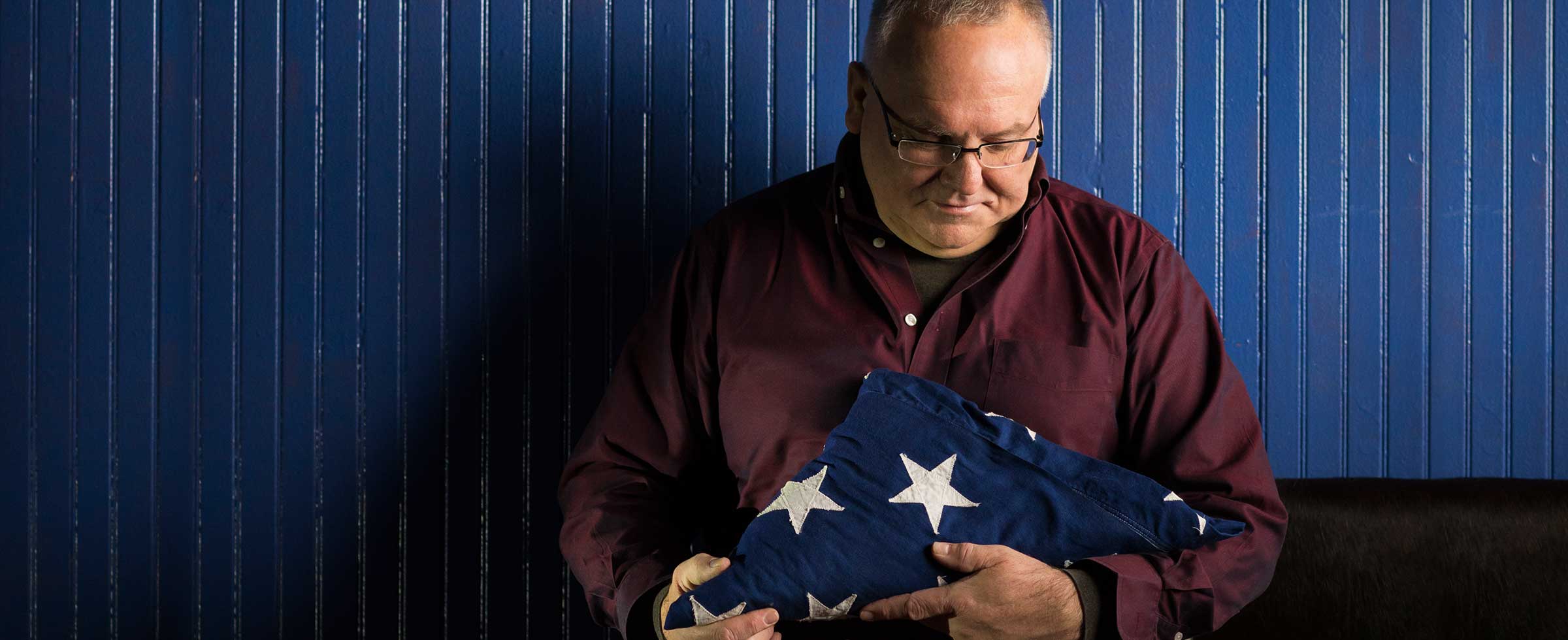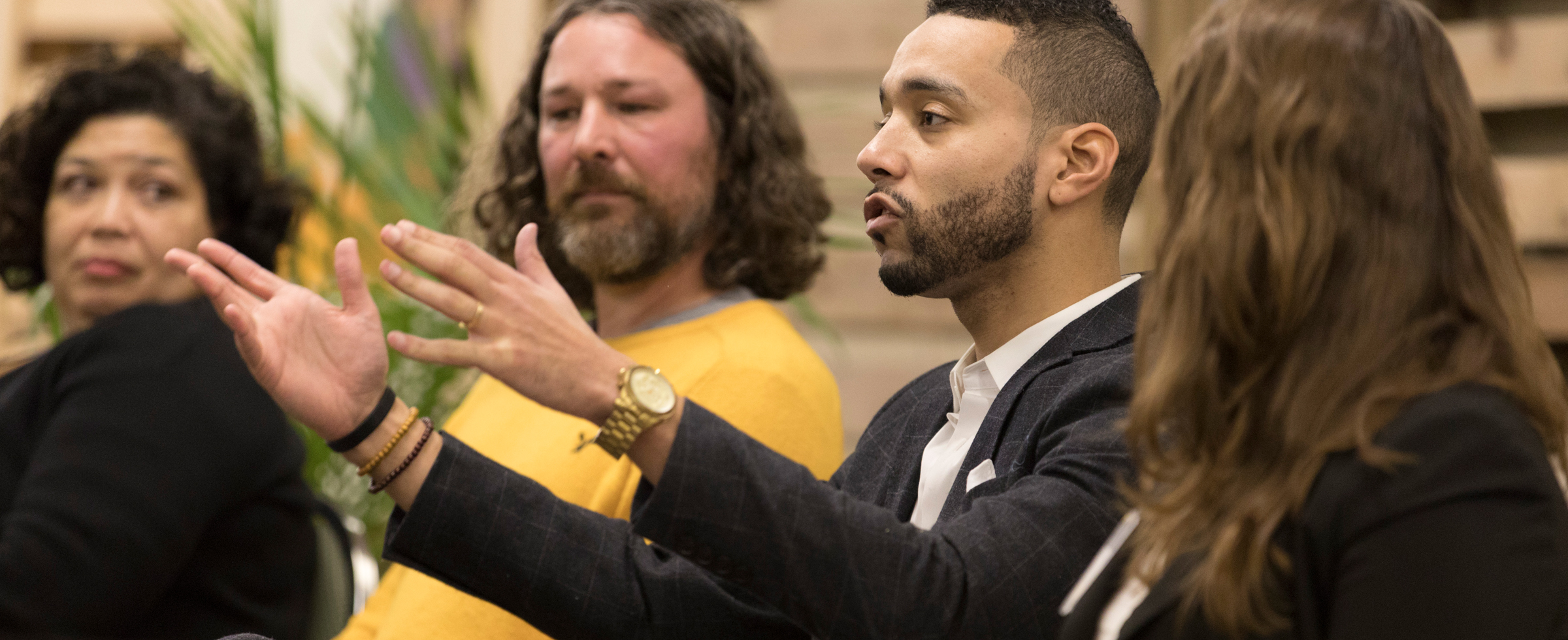Angels, heroes and helping hands

When Air Force combat veteran Brandon Jones returned to civilian life after multiple tours in Afghanistan, his post-traumatic stress disorder was so severe that he barely left the house. Plagued by night terrors, Jones was exhausted and anti-social. He barely spoke to his wife and two children. Medications — more than a dozen of them — and therapy were having no effect, and his mental health had worsened to the point that he was having thoughts of suicide.
It was in the midst of that escalating mental health crisis that a German shepherd named Apache bounded into his life and, by all accounts, saved it.
It was during Jones’ stay in an inpatient program that he learned about the Guardian Angel Medical Service Dog program in Williston, Florida. Since 2009, the organization has trained more than 100 service dogs and carefully matched them with disabled combat veterans. Jones, 33, of Apollo Beach, Florida, applied, and in 2013 was paired with Apache.
“Apache is not just a service dog. He is my wingman. I cannot imagine where I would be without him,” says Jones, who, with Apache at his side, continues to make strides in recovery.
Jones’ story of depression and disconnection is too common among combat veterans whose transitions back to civilian life are often upended by physical injury and emotional trauma. According to a 2013 Department of Veterans Affairs report, a veteran commits suicide every 65 minutes. Thanks to grants from The Pittsburgh Foundation and its donors, local veterans will soon benefit from two programs that provide medical assistance and access to meaningful employment.
In collaboration with the Guardian Angel dog program, Pittsburgh-based Veterans Leadership Program is pairing former military combat personnel with canine companions that have completed 14 months of intensive training to help their veteran owners manage challenges related to post-traumatic stress disorder, traumatic brain injury, and mobility or sensory impairment. As important as the assistance that the dogs offer is the companionship and caretaking that each animal provides to its handler.
Donor Scott Noxon learned of the angel dog program through the Foundation’s Center for Philanthropy. Through his fund at the Foundation, he had previously supported purchase of armored vests for Pittsburgh’s K-9 officers and military-grade crates for safer transportation (see sidebar). Noxon was also seeking a way to honor the memory of his longtime friend, Paul Myles, a U.S. Army veteran who committed suicide amid family difficulties and a long illness. When Noxon learned of the angel dog program, he stepped forward with a $22,000 donation to fund a dog that would protect, assist and provide companionship to a Pittsburgh-area veteran.
“Dogs are a member of the family. They know when people are physically or emotionally sick. There’s no need to make conversation because they respond to the emotional cues,” says Noxon.

Other donor families, including Troy and Theodora Polamalu, along with Joe Fairbanks and his wife, Marti-Ann, were moved to participate. The Foundation itself funded two dogs through the Henry C. and Belle Doyle McEldowney Fund. Seven dogs are now in training and will soon come to Pittsburgh.
“One of the most important things we can do for veterans is help them make a successful transition to civilian life,” says Fairbanks. “Managing physical injuries, PTSD and emotional issues are the top priorities. That’s where I saw angel dogs as an opportunity to help.”
In July 2014, Fairbanks, a U.S. Navy veteran, retired from a successful career in high-tech sales. He attributes his career success to characteristics acquired and developed in the Navy — focus, commitment, responsibility, discipline and teamwork. These traits are as fundamental to success in civilian careers as they are in the military. In the Navy, he was also introduced to technology and sales, both of which shaped his career path.
That fall, Fairbanks and his family established a fund at the Foundation and began looking for ways to direct Fairbanks’ expertise and financial resources toward helping other veterans transition to civilian life. After a few months of research assisted by the Foundation’s donor services department, Fairbanks made a $60,000 grant to fund the first full-time staff member for Hire Our Heroes. Staff at the Virginia-based nonprofit provide intensive coaching and job-placement services to veterans. They also network with employers to make sure they understand the problem-solving skills, teamwork and discipline that veterans bring to civilian jobs. Given that western Pennsylvania boasts the nation’s fourth-largest concentration of veterans, the region will be a top priority for the organization’s work.
“I see our grants to Hire Our Heroes and to the angel dogs program as integral parts of helping veterans transition from military to civilian life,” says Fairbanks. To me, these programs are not mutually exclusive, but are part and parcel of helping veterans make the transition happily and well.” More information on the program can be found at hireourheroes.org.
Original story appeared in Forum Quarterly - Spring 2016




